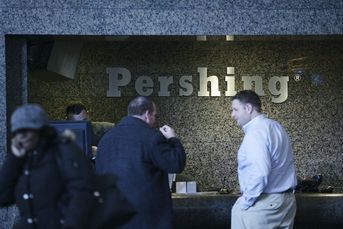Financial Engines’ acquisition of The Mutual Fund Store a turning point in robo debate

Deal is proof positive that online advice platforms will need human advisers to offer a full menu of financial planning services.
If ever there were doubt of the need for the human element when it comes to robo-advisers, there isn’t any more.
Financial Engines, which some call the original robo-adviser, is paying $560 million in cash and stock to acquire The Mutual Fund Store, a registered investment advisory firm with $9.8 billion in assets under management.
Even more valuable than the assets, however, are the 125 retail locations and 300-plus advisers the firm offers Financial Engines, a 401(k) advisory firm with $104 billion in AUM. With these new resources, the retirement robo will offer 401(k) participants face-to-face consultations and more comprehensive financial planning.
“We learned people need help in different ways,” said Lawrence Raffone, chief executive of Financial Engines. “What became apparent was folks who were getting closer to retirement, they wanted more face to face and wanted us to be more holistic.”
Financial Engines, which began offering online automated investment advice to 401(k) plan participants beginning in 1996, hinted in September that it would move toward more human-oriented advice. The company announced it would be a hybrid model, where clients can access their accounts online and phone in to a call center and talk to advisers for no additional fee.
The Mutual Fund Store will provide more access to human advisers, Mr. Raffone said. There is currently a 50% overlap between where Financial Engines’ clients are located and where The Mutual Fund Store’s retail outlets are.
The Kansas City-based Mutual Fund Store, principally owned by private equity firm Warburg Pincus, has been expanding in recent years. Though it has been a financial planning practice since 1996 with portfolios of mutual funds, it began offering exchange-traded funds and bought an insurance company, Stuart Woodbury Insurance Inc., earlier this year.
The advisory firm’s name will change to Financial Engines and locations will be Financial Engines-branded upon completion of the transaction, expected in the first quarter of 2016.
Financial Engine’s shares were up 5% Friday afternoon. The deal was announced after the markets closed on Thursday.
the big picture
Along with a more human touch, clients wanted to see how their retirement plans fit into the bigger picture of their finances, Mr. Raffone said.
“What’s hard sometimes is in mainstream America, the now prevents you from the next,” Mr. Raffone said. “The idea of having a broader-based plan became apparent.”
He said having a holistic financial plan is inherently important, especially to younger clients or those with smaller accounts. It’s where technology and traditional advisers really work well together.
“We think the model is a combination of high-tech, high-touch,” he said, adding that there are three segments of clients: those completely comfortable with being online only, those completely uncomfortable with being online only, and those who want both. “We are convinced that is the model.”
Laura Varas, principal at research firm Hearts & Wallets, said Financial Engines’ acquisition is a step in the right direction for the robo, which did not perform well in the research firm’s Inside Advice 2015 study. She said the company was too focused on retirement savings, and not the big picture.
“I encouraged them to broaden the scope,” Ms. Varas said. “Young investors starting out in life, they need to be putting away money for retirement, but they have other pressing needs too.”
Fred Barstein, founder and chief executive of the Retirement Advisor University, said offering a more full financial plan is great in theory, but will require a lot of work in finding the data to power such holistic advice. That will come with building strong relationships with recordkeepers, who hold client information.
Financial Engines will also need to work on its brand now, Mr. Barstein said. Prior to the acquisition, the company worked behind the scenes with plan sponsors, but it will have to get its name out there in order to capture more potential investors. He said branding is what made Charles Schwab & Co. and Vanguard successful when they launched their own versions of robo-advisers.
Financial Engines may be able to do this through their current 401(k) plans.
“The greatest asset of defined contribution plans is not the money, it is the access to the people,” Mr. Barstein said. “There are 80 million people in a defined contributions plan, which really affects 120-250 million if you think of families and children.”
“It is direct access, even if all they do is look at account statements,” he added. “How do you leverage that? That is the game being played right now.”
The acquisition also solidifies that robo-advisers will need to leverage human advisers to stay relevant. A study by Cerulli said robo-advisers will need to grow by 50% to 60% for the next six years to attain a successful direct-to-consumer robo model.
Mr. Barstein said Financial Engine’s acquisition of The Mutual Fund Store gets that message across.
“It is just incredible,” he said. “It is an incredible admission that this is not just going to be done in cyberspace.”
Learn more about reprints and licensing for this article.







